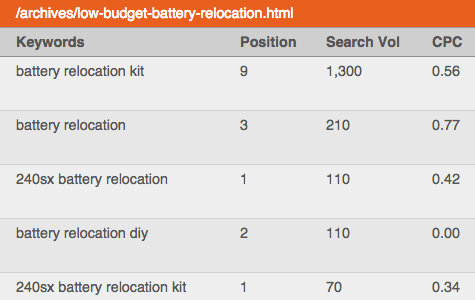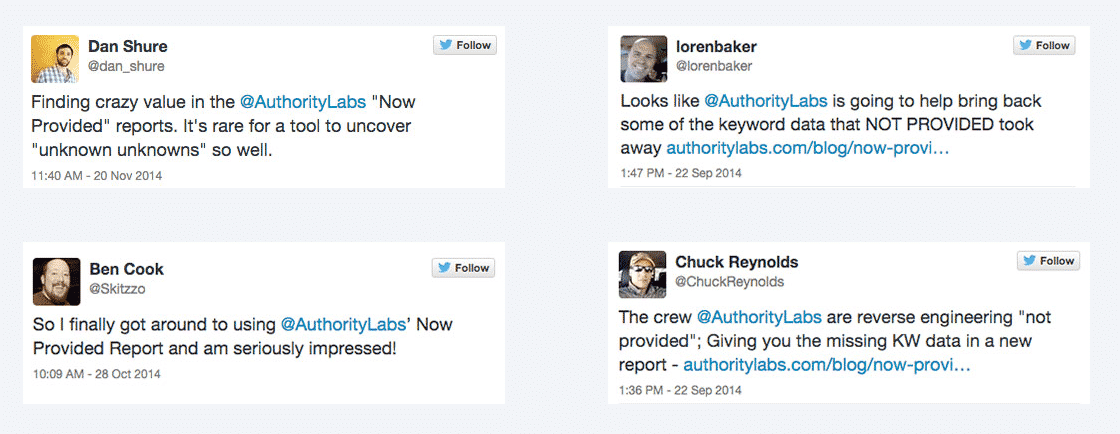SEO is great. It really is. It’s what helps make our cyber world go round. Without SEO, searching on the internet would be a heck of a lot more frustrating and search results would be scrambled. Great websites wouldn’t be seen and it’d be a lot harder to ask Siri where the closest pizza joint is.
As with any job though, even the dream ones, there’s a handful of things that SEO’s just don’t care for within their practice. I’m sure you can think of a few right now, just off the top of your head.
Take a look at these 8 things SEO’s hate about SEO and see if you can relate.
Instant Gratification is Not Really a Thing with SEO
If we could all make our client’s rank on Page One the first day into a new campaign we’d be swimming in riches.
Luckily for searchers, there’s a reason why being granted on Page One of search results takes time, and a lot of effort. Search engines only want to populate what’s relevant to searchers, what people are actually asking for and desiring.
Which means your client’s new website may not be crawled (and respected) by Google immediately. It needs to clearly relate and show validation over time in order to start showing up on the first page of relevant search results.
Clients, who are users themselves, don’t always see things this way and it can tend to cause problems with some relationships. This makes the SEO’s job of explaining to the a client how much time it may take for a new site to rank pretty frustrating.
Black Hat Techniques Are a Real Issue
Bad apples exist in every industry, but in ours we give each apple a black hat to wear.
What makes a technique black hat is when someone tries to increase rankings using methods that violate the terms of service of search engines. Basically, they’re breaking the rules to increase rankings and trying to get away with it. These methods can completely backfire though and cause a site to be penalized for using black hat seo techniques.
Some black hats don’t distinguish themselves as such, so their clients are unaware of their spammy practices and end up getting penalized for something they most likely didn’t authorize. It also raises red flags (or black) within the industry that causes stricter guidelines and new time consuming updates.
Wordstream put together a great list of every type of black hat technique that Google and search engines can penalize you for:
- Content Automation
- Doorway Pages
- Hidden Text or Links
- Keyword Stuffing
- Reporting a Competitor (or Negative SEO)
- Sneaky Redirects
- Cloaking
- Link Schemes
- Guest Posting Networks
- Link Manipulation (including buying links)
- Article Spinning
- Link Farms, Link Wheels or Link Networks
- Rich Snippet Markup Spam
- Automated Queries to Google
- Creating pages, subdomains, or domains with duplicate content
- Pages with malicious behavior, such as phishing, viruses, trojans, and other malware
In addition to the actual black hats, there’s the spammers who try and attract the most attention possible with illegitimate claims. There’s the “Get on Page One of rankings for only $50 a month” bad apple, the “I’ll sell you links” bad apple, and my personal favorite the guest post request. Spam tactics like these give a pretty bad rep to the real SEO’s, the ones sweating links and are deep in the trenches of actual keyword research.
Link Building.
We can all have a deep sigh for link building. Sure, its great and one of the best ways to organically improve rankings, but it’s also incredibly dependent upon relationship building. Good link building requires good relationship building and can be done through finding relevant influencers, websites, and companies to cross promote with.
SEO’s aren’t exactly known for being “peoples-persons”, they’re much more of the sit behind a computer screen and will chat with you type. Which means you’d think they’d be great at online outreach. And they are – but in reality, online outreach has become infested with the rise of the industry and increase of the spammers I talked about above. The chances of your outreach for link building getting through to the right person is usually rare.
Plus, there is a lot of denial that comes with link building. Not everyone wants to feature your post on their blog. Most of the time you won’t even hear back from anyone, and when you do it can come with a hefty price tag.
Updates Happen ALL of the Time
ALL OF THE TIME. Want to go on vacation with your family for 2-weeks? An update will most likely happen while you’re unplugged. Not checking emails while you’re on that vacation? HA!
We do understand that updates, as annoying as they can be, are necessary to keep spammy tactics at bay and technology at it’s finest level. Most of the time when an update happens it’s a good thing. But, sometimes there are huge colossal updates, like Mobilegeddon, that if you don’t jump on board with immediately you’ll be lost at sea.
Also, if you’re at an SEO conference, you can just about guarantee that an update will go LIVE and client calls and emails will start pouring in.
There’s a conference-wide joke with Pubcon Las Vegas, a digital marketing conference, that Google and Facebook love to make new updates during the conference each year, causing digital marketers to frantically rush to a laptop and make adjustments.
Excel Docs Full of Keyword Research
Searching for keywords can be a headache. It’s looking through excel sheet after excel sheet, updating, testing, and then doing more research.
Not only is it time consuming, but it’s a mandatory task SEO’s have to do. We need to know what type of keywords people are using, especially with the rise of voice search, we have to stay on top of keywords and constantly test new keywords.
Luckily, there are tools out there to help lessen the time of this SEO task like the AuthorityLabs’ keyword and Not Provided tools.
AuthorityLabs’ combines data from various sources including our own rank tracking and Google Analytics to show you which keywords are driving traffic to each page on your site. You can use this report to prioritize SEO focus, plan new content, and improve under-performing landing pages.
Translating SEO to Non-SEO’s
Not everyone understands what S-E-O is and all of the many factors involved, especially when trying to convince higher up managers or CEO’s of best practices.
SEO uses terms like organic, meta tags, keywords, SERP, redirects, Canonical URLs, etc. which most of the general population doesn’t understand the meaning nor importance of.
That’s okay, but as SEO’s we need to take the time to clarify certain tasks and why things like creating new content is important. Time = delays. Whenever we ask something of a client we need to define the reasoning, in both SEO and non-SEO wording, and what kind of impact it will have on their rankings, and be prepared for the headache of when it delays a project.
Writing For Bots and Not People
Sometimes we fall into a very bot-driven pattern. What I mean by that is we are pumping out content left and right just to get content out (because good SEO needs content) that we forget to create content for PEOPLE and not just search engines.
Yes, content should be driven by keywords and phrases that people are looking for to help populate in search results, but it should also drive the attention and attraction of a user. This happy middle place can be hard to find sometimes for SEO’s.
Not Provided Keywords in Google Analytics
Let’s face it. You work hard for organic traffic. There’s nothing “free” about it. With (Not Provided) becoming the norm for keyword data in analytics tools, our Now Provided report is now a key part of any SEO toolkit. Focusing efforts on pages and keywords that already have some traction in the engines can be quick wins that pay off in a big way.
We combine rankings, Google Analytics, volume, and competition data to highlight your important keyword opportunities. Easily add these keywords to your rank tracking so you know where you stand with your SEO efforts every day.
Did I miss one of your big pet peeves about SEO? Comment below and share one of your frustrations!



